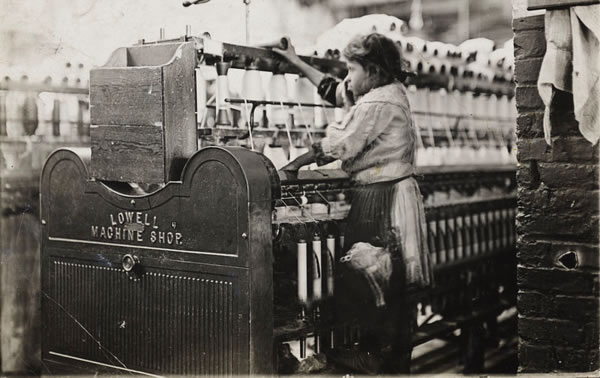
By George Hopkins | September 2 is Labor Day, the day when our nation honors the working women and men who build this country and make it prosperous.

It is also the time to remember the achievements of the organized labor movement in the United States. Unionized workers correctly refer to themselves as “the folks who brought you the weekend.”
Many basic American rights and benefits that are often taken for granted — the 8-hour work day and a 5-day work week — were not willingly handed to workers by benevolent employers. Workplace changes came through perseverance and struggle. Gaining legal recognition of workers’ rights to a voice in management and working conditions required the hard work and dedication of thousands of union men and women. They marched, protested, went on strike, boycotted, organized, voted, lobbied, sacrificed and were injured or killed to win these rights.
Today, union workers enjoy higher pay, superior benefit packages [including health insurance] and better pensions and retirement programs than nonunion workers. Yet unions today represent less than 7% of the private sector workforce. In South Carolina, it’s less than 2%, the lowest in the nation.
This year, Labor Day is a call to action to defend the civil and economic rights of all working people and to oppose the repeal of such rights for public sector workers. Remember how we all hailed the brave firefighters, EMTs and police in New York City on Sept. 11? All were and are proud public sector union members.
Today, manufacturing jobs continue to be “outsourced” while the low-wage service sector grows, paying most of its workers the minimum wage $7.25 per hour with no benefits– and most workers there often get less than 40 hours work per week. Fast-food restaurants have similar policies.
Because people cannot survive on these low wages and part-time hours, they must rely on food stamps, Medicaid and hospital emergency rooms for health care. This means that taxpayers like you and me are subsidizing these companies’ refusal to pay a living wage with benefits. While we in America subsidize low worker pay, these companies make record profits, avoid taxes and hide their money through off-shoring banking and other subterfuges– AND their CEOs “earn” millions of dollars in salaries, benefits and stock options. In 2024, the United States has the worst economic inequality since 1929.
Yet workers are succeeding in organizing unions–at an Amazon warehouse on Long Island, numerous Starbucks locations and now a Chipotle. Workers at other fast-food outlets have voted to unionize, many aided by the Union of Southern Service Workers. But managers and corporations have often refused to bargain in good faith.
In South Carolina, the Charleston Alliance for Fair Employment [CAFE] has secured a major grant to establish a Charleston Workers Center (CWC). Its first public event was a “Charleston Workers’ Rights Workshop” to let workers know their rights under South Carolina and federal law. The successful event was well-attended. More workshops are being planned. This workers’ center joins other such centers around the country in a network of worker advocacy groups.
A recent Gallup poll showed that 71% of Americans have favorable views of unions – the highest approval rate since 1965. This reflects, in part, the experiences of those who went through the Great Recession, which bailed out banks and corporations—but not workers with mortgages or rent to pay. It also reflects the experiences of Americans who went through the Great Pandemic and found that “essential workers” were still poorly paid—and that many companies had no concerns about employee health and safety.
Strong support for union reflects the awareness that the labor movement in the United States led or played major roles in the struggles from ending child labor and securing unemployment insurance for workers who lose their jobs to securing a guaranteed minimum wage and a host of health-related protections.
As we celebrate Labor Day, we must protect our nation’s union legacy and continue to defend the hard-earned rights of working people in America.
George Hopkins is professor emeritus in history at the College of Charleston. This commentary originally was published in the Charleston City Paper.


